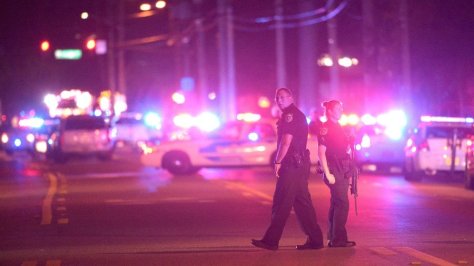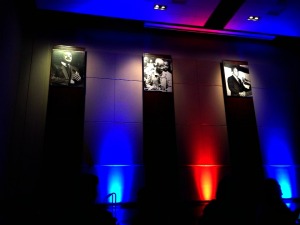
While reading Michelle Cliff’s Abeng, one of the most prominent moments in the piece is the death of 100 slaves by Judge Savage’s hands. After reading the recollection of this occurrence, I actually stopped reading the book for a while because the thought of this ghastly act is so disturbing. How could someone kill so many people? Many times we could never imagine how such a deed could ever happen, and how this act would not be considered downright macabre. How was this terrible man justified in such ways?
Savage burned his slaves to death because they were his property, and he felt that he could do with them as he pleased. These people, slaves, stood at the eve of their freedom, and they were gruesomely silenced before they could see that dream become a reality. Now, we would consider this appalling act as blatant murder or even an act of terror; however, at the same time we can also look back and see that slavery itself was morally wrong. In our hindsight, we know both of these acts could never be justified properly, so we view them as terrible mistakes.
This separation, the slavery from the killing, is significant. At the time of the occurrence, holding slaves was legal, so I do not believe many would have opposed that act at all. Though morally we know killing other people is wrong (especially burning them to death), the Africans were viewed as Savage’s property. These “people” were looked down upon, so much that they were not even recognized as human. They were seen as lowly objects just because of the circumstance of their birth, something that they could not help. We see now that the slavery and oppression of these people was wrong, but we also view the murder as a terrible unjust thing. We do not stand for either of these two separate acts now, nor do we see either as justification for the other. During this time, the act of enslavement was not seen as breaking the law, nor was the desecration of one’s own property, even if it meant the death of 100 people.
Now, let us fast forward to our modern times. We face another striking, yet terrible occurrence with the assault on the Pulse nightclub in Orlando, Florida. Here, there was a gunman, Omar Mir Seddique Mateen, who targeted a specific group of people: homosexuals. Again, this massacre takes the lives needlessly of the oppressed, who number 49 dead and 53 wounded at the time of this commentary being written (New York Times).
In the same way as Judge Savage killed the slaves of his plantation, we see that the oppressed continue to take massive blows on the eve of their freedom. The next evening after the shooting, a person called in to a radio station that I listen to. In tears, this person said “just as it seemed safe to come out, something like this happens”. This was a clear reminder to me, having just read Abeng, how some people cannot stand to see the oppressed gain their freedom or identity, and how the misunderstanding of other groups can lead to such appalling occurrences.
Again, there is a separation from the oppression and the killing, yet we view the circumstances differently right now. We know that the oppression of people is wrong, and we acknowledge that legally in many different areas (the Emancipation Proclamation, the creation of the NAACP and ACLU, etc.); however many people still attempt to justify their negative views. In turn, these people believe that this gives them a purpose to claim their hatred towards these people, enough so to kill them. It gives them a reason to spread their hate, and they feel justified in their ways.
Furthermore, I have seen some Facebook posts that have a similar mixed reaction about the killings. The majority of people see the act of murder as appalling, yet others have been quite vocal on the circumstances of this event. They believe that the murder of homosexuals is justified because the people were gay, and that they had it coming because of their sexual orientation. They view this group of people as being lowly immoral objects who are not yet fully human, and this seemingly justifies their views.
Right now, most people know that neither of these acts are morally rationalized, yet some people continue to believe these occurrences are not a problem. They think in the mindset of pre-1863 logic, that because a people can be oppressed, they should be oppressed, and in their oppression the slaughter of this people can be defended. I absolutely believe that 150+ years from now all of humanity will look back at events like this and see these people, who do not support their fellow man, as being on the wrong side of the argument.
Just as today, we look back and think of the horrors of slavery, all of the pain, suffering, and heartbreak the Africans went through, people will look back on this era and see the error of their ways in thinking that homosexuals can be reprimanded for the circumstances of their birth. People will not just show sympathy, but also empathy towards this group of people and the evils that they faced along the way. One day humans will finally understand that the persecution of one group, only because they are different, cannot hold to a logical, moral, or even religious argument.
Additionally, it is worth mentioning that the Pulse Nightclub event has quickly become synonymous with firearm issues and gun control. However, I believe in the same way that Judge Savage used a tool, fire, to kill his slaves, we cannot hold the item accountable for the act. People would like to focus on how such a terrible tool, a firearm, allowed Mateen to inflict such massive casualties. Instead, we should focus on how morally this same attitude has prevailed for hundreds of years. Our focus should not be on how either of these murderers committed their terrible deeds, but why they acted the way they did. What made them feel justified and validated in their views to kill 49 and injure 53 more, or destroy 100 human lives, all on the eve of their freedom?
In the same way the families of all of these people, separated from one another by hundred of years of grief, will never find the answers or closure they need, we cannot look at these events and find a single answer to a moral deficit. This is not a single group’s problem, this is not a gun control problem, this is a human problem. Why have individuals believed they are justified in their ways, enough so to take the lives of people, and why has this attitude persisted for so long?
There is no simple one answer to this issue, and what is even more terrible, there may very well never be.
